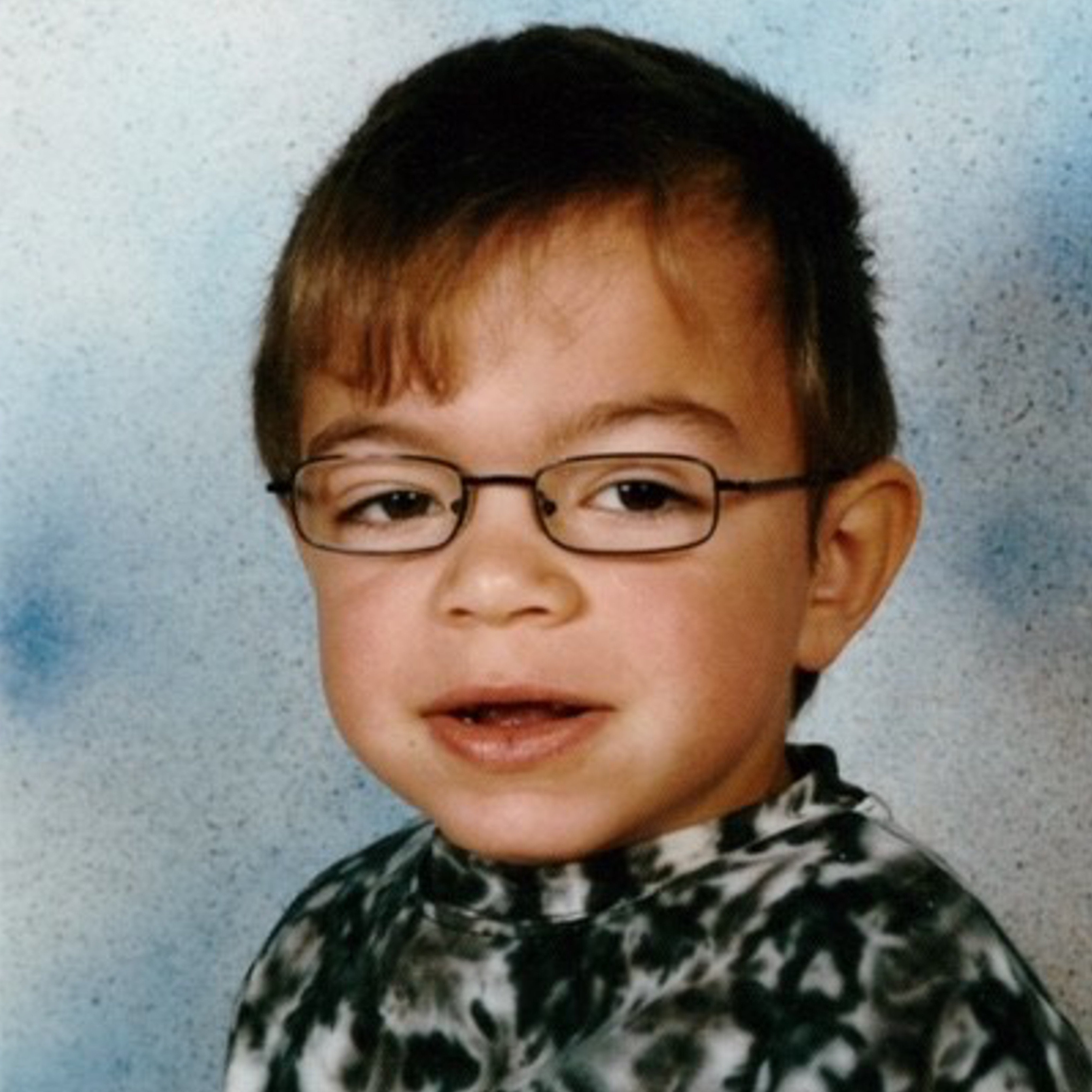Managing Hunter syndrome in adults
As patients with MPS II reach adulthood, the responsibility for your care is transferred from a paediatric to an adult care team. You may be used to a paediatric care team that often focuses on your overall development and growth, this differs from adult care which may involve an entirely new multidisciplinary team consisting of specialists that are each focused on specific symptoms. This transition can be a big change but it also provides you with an opportunity to be more independent.
As an adult, you can be more involved in your own healthcare decisions, including scheduling appointments. It’s important to talk about your individual needs with a physician, your journey is unique and discussions like this can help plan for the right care for you.
Hunter syndrome affects multiple organs, and as a progressive disease, symptoms can accumulate and worsen with age. However, each individual patient may experience different signs and symptoms, owing to the highly variable nature of Hunter syndrome. In a study of three adult brothers (aged 46–52 years), who were diagnosed in young adulthood (see below for more information about diagnosing late-onset Hunter syndrome), each had similar organ systems affected, but there was a high variability in symptom severity; for example, one brother had near-fatal heart problems, and another had minimal heart problems.
As you get older, your symptoms may worsen, or new symptoms can emerge, some of which may be unrelated to Hunter syndrome. Everyone is different, so try to avoid assumptions based on other patients. Consider yourself unique and ensure that your condition is frequently monitored to know how Hunter syndrome is affecting you.
Heart valve disease is very common in older patients. In the Hunter Outcome Survey (an international, long-term survey that collects information about the disease from patients), valve disease was the most common heart symptom, and in another study of patients aged 21–54 years, all patients had valvular heart disease. As heart valve disease can be life-threatening, it is important that you regularly have your heart monitored. Speak to your physician about any concerns you have, regarding the health of your heart or any other symptoms you have.
The following symptoms are common in adults with Hunter syndrome (but may or may not affect you), so make sure that you have regular appointments with a healthcare team of specialists that can monitor all of these body systems and check on these symptoms.
Common symptoms in adult patients and which types of doctor could help
Can be monitored by a cardiologist
- Heart-valve and ventricle disease
- Abnormal heart-muscle function
- Increased blood pressure
Can be monitored by a pulmonologist
- Obstructive and restrictive airway disease
- Sleep apnoea
Can be monitored by a rheumatologist
- Bone deformities
- Skeletal changes called dyostosis multiplex
- Widespread joint involvement with reduced range of movement
- Hip dysplasia
- Severe arthritis
Can be monitored by a neurologist or orthopaedic surgeon
- Spinal instability and spinal cord compression
- Cervical spine stenosis
Can be monitored by an ENT specialist
- Progressive hearing loss
Can be monitored by a neurologist or rheumatologist
- Carpal tunnel syndrome
- Hands may broaden, and fingers curve inwards (often described as stubby clawed digits)
- Trigger finger
Can be monitored by a gastroenterologist or surgeon
- Enlarged liver
- Enlarged spleen
- Umbilical or inguinal hernias that can be surgically repaired but often come back
Heiko was diagnosed with Hunter syndrome when he was around two and a half years old, following mobility problems and a hernia. Growing up with Hunter syndrome, Heiko developed a positive attitude to living with Hunter syndrome, and with support from his family, doctors, and friends, Heiko graduated school with flying colours and now works as a fully trained IT specialist in a hospital.
Taking more responsibility during puberty
Changing the way I think about things was an important turning point. I no longer wanted to say: “Why me?” but “Mission possible. I am choosing to accept this challenge!” It was important for me to take responsibility for myself and to take my fate into my own hands instead of rushing from one appointment to the next at someone else’s command. I examined and analysed every appointment. I was able to go to regular school… though I did get partially exempt from sports classes. Being the pragmatist I am, I simply scheduled my [appointments] during [them]. Of course, I could have complained… [but] I knew that the only way to keep going was with discipline and mental peace.
A hero, stuck in a dungeon, in need of smart strategies and allies to help him find the way out: That’s a classic narrative in the world of computer games, and it illustrates how I sometimes feel about my own life. In my own life, of course, I am the main character.
- Heiko
Making friends and changing perspective
I couldn’t join any local clubs or participate in their activities, so I looked for another way to make friends. I found the answer in online computer games. Here, nobody cares about a player’s external appearance. It doesn’t matter if you’re a wheelchair user or a body builder. I know a lot of new people, from many different countries and regions, and we don’t just talk about games [but] also get a chance to discover one another’s culture and tradition. I was able to expand my interests, broaden my horizon, and change my thinking.




Family, doctors, and friends as allies
The most important helpers are my closest family members. We go through everything together and help each other out when there are problems. That’s enormously important. I would [also] highlight the importance of doctors, nurses, and physio- and behavioural therapists. I gained my detailed knowledge about Hunter syndrome from the doctors, and the therapists have taught me valuable strategies for things like localised pain management or succeeding at activities that are difficult with Hunter syndrome. For example, I learned the [pinch] grip, but when it doesn’t work, I’ll simply use the pinkie and ring finger. I’m showcasing a new way to achieve the same goal. Next challenge, please! With this attitude, I gained independence at school… and in everyday life.
Leaving school and becoming an adult
As I headed for final exams, I was afraid I might fail… or only just make it with miserable marks. But thanks to a large amount of ambition and probably also selfishness, I graduated from secondary school with a neat average mark of… 96% of what’s achievable. I’m proud of that, as I had very limited time to learn, yet I didn’t just make it – I excelled! When I transitioned from paediatric care to general adult care, I noticed that there was less of a focus on me as a person and as a unique case. Luckily, I have acquired enough expertise by now to find my own way through the medical jungle.
Working as an IT specialist and feeling even more confident
Through my subsequent training as an IT specialist, I was able to turn my hobby, the computer, into my job. Today, I’m working in a hospital’s IT department as a fully trained specialist. Work of course keeps me busy, so I sometimes have to fit in occupational therapy and remedial gymnastics on the same day and do it in the evening. With strength and cardio training, I improve my agility and also feel more comfortable in my body.
If you experience a blow and fall, don’t stay down there. Think of those who are important to you. You are also important to other people. Find allies who will help you… reach the next level. Because you too have a hero in you.
- Heiko
Download the Information for young adults leaflet
Employment
If you are a family member or caregiver for a child with Hunter syndrome, your work life may also be affected. You may need to take time off work, or to work flexibly, to attend healthcare appointments, or to care for your child.
TThe downloadable leaflet Information for employers can be a useful tool to use in discussion with your employer about the adaptations and flexibility that you may need in your job.
Your local MPS society can also give you information about your entitlements as an employee.


Download the Information for employers leaflet
Diagnosing late-onset Hunter syndrome
Hunter syndrome is often considered a childhood disease, but some patients are not diagnosed until young adulthood, so if you are experiencing, or have experienced, a combination of any of the symptoms mentioned on the signs and symptoms page, discuss this with your physician. Be aware that Hunter syndrome affects individuals differently, and there have been case reports of patients with late-onset MPS II presenting atypical symptom combinations. For example:
- A 24-year-old male patient was diagnosed with MPS II based on a history of joint issues in his upper limbs and a hoarse voice, but no other significant symptoms or restriction of movement were seen.
- A 20-year-old male with longstanding joint-movement problems and glaucoma, and a medical history of mild sensorineural hearing loss, tonsillectomy, and inguinal hernia, led to MPS II diagnosis, but no cardiac symptoms, no hip dysplasia, and only subtle facial features were seen. His two brothers were subsequently diagnosed: both had subtle facial features and had reported joint problems since childhood; one had previously been diagnosed with cardiac-valve disease; the other remembered having a prominent abdomen in childhood.
The severity of Hunter syndrome can vary from patient to patient, with some having a later onset and slower progression than others. It may be that when you were younger, you did not show any signs and symptoms of MPS II, or you had mild symptoms that were overlooked, but your disease was progressing and is now more recognisable. It is also possible that your MPS II symptoms were misdiagnosed as other conditions; for example, those with non-inflammatory joint problems in childhood could have been misdiagnosed as having rheumatic diseases. Because you may have previously experienced symptoms of Hunter syndrome that were too mild to report to a doctor, carrying out a self-assessment of your past medical history and noting down all signs and symptoms that could be related to Hunter syndrome could aid diagnosis. In addition, Hunter syndrome is an inherited condition that primarily affects males, so reporting any family history of similar symptoms could also help your doctor.
Receiving a late diagnosis of Hunter syndrome can be distressing, but support is available for you. Speak to your physician, who can help connect you with a multidisciplinary team of specialists, who can provide supportive management and anticipate possible complications related to Hunter syndrome, which could help improve your quality of life. In addition, connecting with other affected patients, families, and support groups can be helpful. Reaching out to IMPSN or your local MPS society can be a good place to start.
